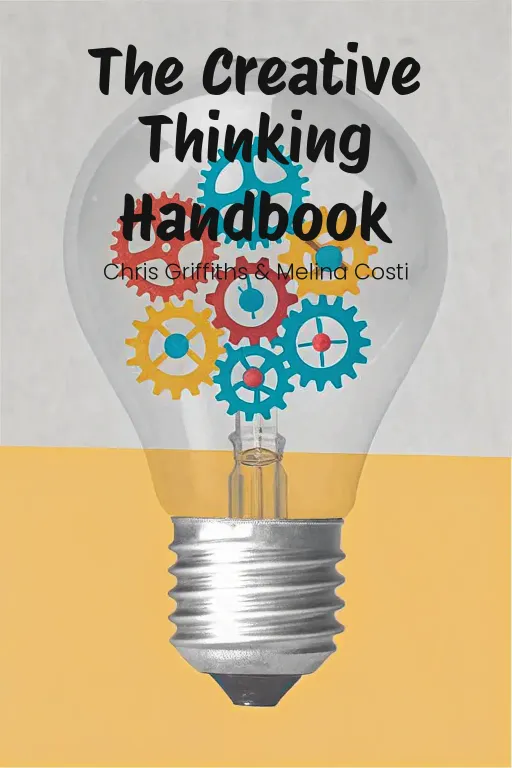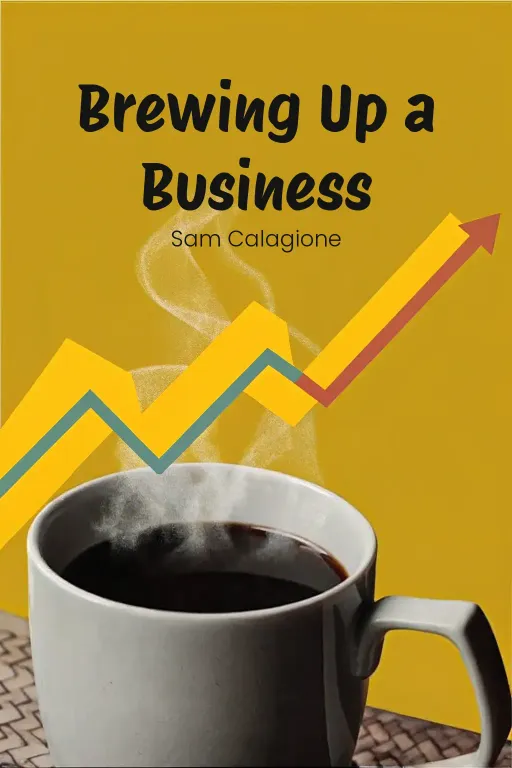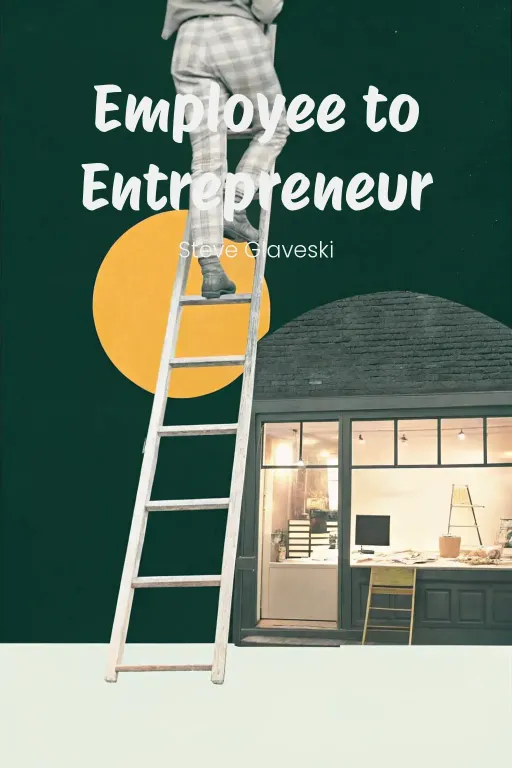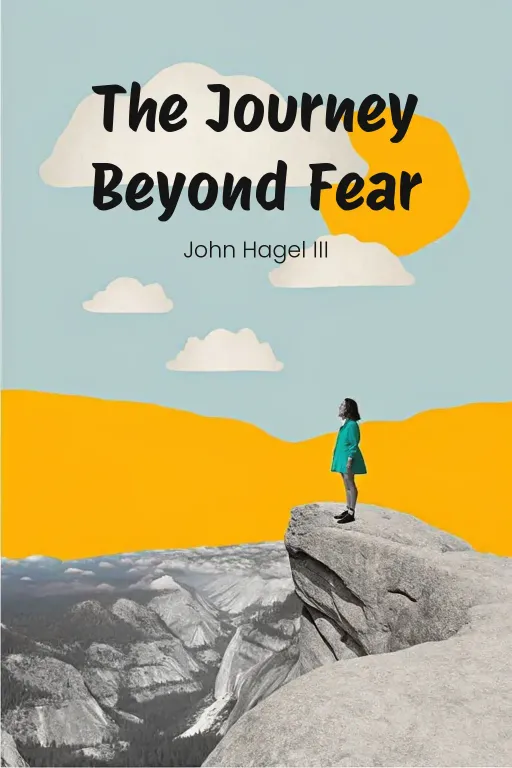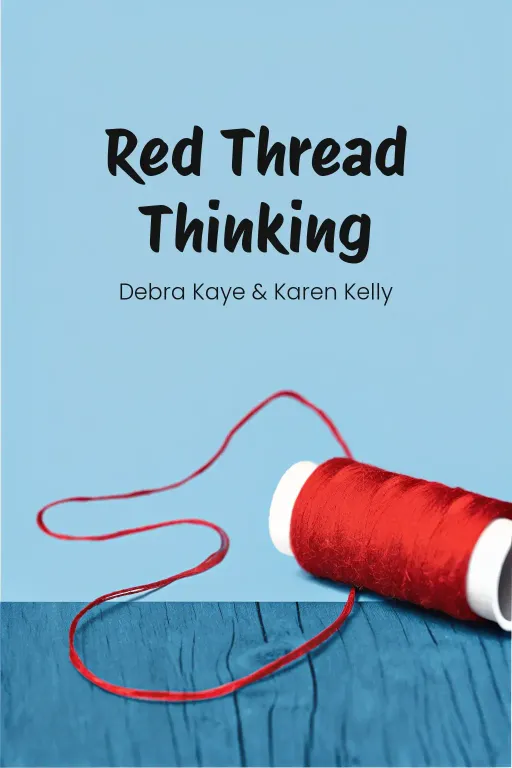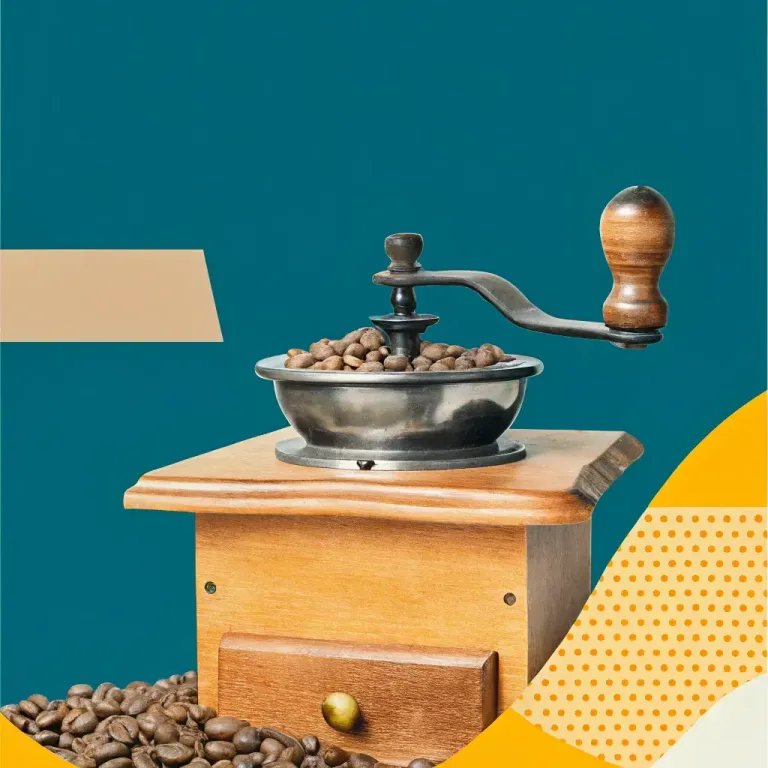
Brew Your Biz: Passion, Balance, & Beer
Podcast by Let's Talk Money with Sophia and Daniel
Adventures in Beer from the Founder of Dogfish Head Craft Brewery
Introduction
Part 1
Daniel: Hey everyone, welcome! Today we’re cracking open a story that’s a real brew of entrepreneurial spirit and, well, hoppy creativity. We're talking about Dogfish Head Craft Brewery, through the lens of Sam Calagione’s book, Adventures in Beer. If you appreciate craft beer, are thinking about starting a business, or simply enjoy a good underdog story, this one's definitely for you. Sophia: Right, and if you've ever considered turning a completely out-there idea – like, say, brewing beer with maple syrup and scrapple – into an actual successful enterprise, stick around. But fair warning: it's not all arts and crafts. There's a healthy dose of stress, finances, and the occasional, difficult decision to maybe, permanently, retire the scrapple. Daniel: Adventures in Beer is more than brewery behind-the-scenes. It captures how Calagione leveraged creativity and resilience to navigate everything from funding challenges to intense competition in a really tough market. The core question is: How do you stay true to what you love while dealing with real-world business constraints? Sophia: It’s like this, imagine trying to walk a tightrope strung between inspiration and practicality. You've got your passion, your authenticity, your innovation – all the good stuff. But then there's also, you know, cash flow, legal stuff, and trying to stay even remotely sane through it all. No big deal, right? Daniel: Precisely, and we're going to deconstruct all of that today! We'll be diving into three major themes from the book. First, how passion and authenticity define a brand and make it attractive. Second, how innovation and community work together to unexpectedly fuel growth. And third, the constant balancing game between your work and your life so that you don’t lose sight of the reasons why you started. Sophia: So, whether you're a dreamer, a doer, or maybe you're a bit like me – skeptical and just showed up for the promise of beer – this episode will unpack the lessons and the challenges behind building something genuinely “off-centered.” Let's get started, shall we?
The Power of Passion and Authenticity in Entrepreneurship
Part 2
Daniel: Picking up on that first big idea—"The Power of Passion and Authenticity"—I think it’s safe to say that everything about Dogfish Head started with Sam Calagione’s passion, right? He wasn’t just brewing beer; he was telling stories, creating art in a bottle. What struck me was how he tied his background as an English major—someone obsessed with narratives—into his beer-making process. His passion wasn’t manufactured; it was an extension of who he was. It was genuine. Sophia: Right, but let’s not romanticize the story too much. I mean, yes, passion is great in all venture, but you can't just waltz into entrepreneurship armed with a passion for medieval literature and think you’ll make it, especially in a challenging market like craft beer. The 90s were tough years though! Sam was entering an industry dominated by these massive players—Budweiser, Miller, Coors. It’s not all Shakespearean soliloquies over hops. How exactly did he turn passion into a viable business strategy? Daniel: Great question, and one that Adventures in Beer answers very well. You know, it started with differentiation. From day one, Dogfish Head was all about embracing the offbeat, the unique, right? Take his first big experiment, for example—this rogue attempt to create a cherry-infused pale ale in a New York apartment. Was it smooth? No. Was it polished? Definitely not. But it was bold, and it resonated with his friends, the first "test market," if you will. That initial spark showed him that creativity—when paired with authenticity—could be magnetic. People love products that are unique and come with a story. Sophia: Sure, I’ll give you that, people do love a story, especially if it’s one they can retell at a party while sipping a beer brewed with, I don’t know, fermented wildflower honey or pomegranate. But let’s talk about the business case, because your personality doesn’t pay the rent. How does “being different” translate into tangible customer loyalty and, this is key, repeat sales? Daniel: That’s where the authenticity piece kicks in. It wasn’t just about creating a quirky product; it was about creating an experience that felt real and personal. Look at Midas Touch. This wasn’t just a beer—it was a connection to history, inspired by a 2,700-year-old recipe unearthed through archaeological research. Sam wasn’t just selling a drink; he was selling a narrative, a bridge between ancient brewing traditions and modern craftsmanship. That kind of storytelling makes a brand unforgettable. It goes beyond taste, it gives customers something to believe in. In a way, it is very similar to religion. Sophia: Okay, let me play devil’s advocate. It sounds amazing—"Here’s this epic historical beer!"—but does everyone care? I mean, maybe your hardcore beer geeks do, but when you’re standing in a liquor store trying to decide between six craft options, does history or authenticity really move the needle? Daniel: Yes, it does! Because it’s not just hardcore beer enthusiasts who connect to authenticity; it’s a broader consumer shift toward artisanal quality and local craftsmanship. In a world of mass-produced sameness, people crave things that feel personal, that have a soul. Dogfish Head brewed beers for “off-centered” people. That was their slogan, and it stuck! It tapped into this sense of rebellion against the mainstream. Customers didn’t just buy the beer; they bought into a lifestyle, an ethos. Dogfish Head are more willing to be themselves. This also bring inspiration and guide to others. Sophia: So basically, it was punk rock in a bottle? Daniel: Exactly! Punk rock in a bottle, but with refined, thoughtful execution behind it. What’s fascinating is how that deliberate authenticity didn’t just define their branding—it permeated everything Dogfish Head did, from their bold experiments to their direct engagement with customers. Sam was at beer festivals handing out samples, swapping stories, gathering feedback. It wasn’t top-down, ivory-tower innovation; it was grassroots. He listened to people and included them in the brand's story. Sophia: Hmm, playing the “man of the people” card, huh? I’ll admit, it’s effective. Craft beer fans are a loyal bunch. They like feeling like they’re part of something. It’s the same reason hometown breweries thrive; people want to root for their local underdog. But even with authenticity, isn’t that still a niche crowd? Success on that scale relies on scaling up, doesn’t it? How do you keep passion and authenticity intact as you grow? Daniel: That’s the tightrope, isn't it? Scaling without selling out. What’s brilliant about Sam’s approach is how he anchored everything in this idea of "off-centered ales for off-centered people.” So even as Dogfish Head grew, they remained committed to their ethos. They didn’t compromise. They expanded their offerings while doubling down on that quirky, unorthodox spirit. Creativity, not conformity, became their competitive advantage. Sophia: Easy to say, but risky to execute. Being “off-centered” isn’t cheap. Right? Innovation requires resources—time, money, talent. How do you justify pouring energy into something like Midas Touch—an archaeological beer experiment—when you’re just trying to keep the lights on? Even Sam dealt with financial struggles, right? Daniel: Absolutely, and he was transparent about those struggles. There were moments when cash flow was tight, and the competition was cutthroat. But here’s the thing—staying authentic wasn’t optional for him. It was the core of his success. Customers sensed that commitment to individuality and rewarded it with their loyalty. And that loyalty became his safety net. It’s a strategy, Sophia, one where passion and authenticity aren’t just buzzwords but actual business pillars. Sophia: Alright, I can see how passion and authenticity became more than philosophical ideas; they became the engine driving the brand. I mean, even as a skeptic, I can respect that. But now you’ve got me wondering—was that enough on its own? Or was it these wild marketing stunts and one-of-a-kind flavors that actually turned heads? Let’s put authenticity under the microscope a bit further.
Innovation and Community Engagement as Growth Drivers
Part 3
Daniel: Okay, Sophia, so we’ve laid down the passion, authenticity, and this cool combo of innovation and community engagement. But now you’re asking about the dark side, right? When does all this become “too much”? Sophia: Exactly! I mean, it sounds great on paper, but anything taken to the extreme can backfire, right? You can be “too” authentic, “too” innovative for your own good. Was there ever a moment where Dogfish Head risked losing their way, or alienating their fanbase? Surely, it wasn't always sunshine and IPAs. Daniel: Absolutely, Sophia, there are risks. One is the "shiny object syndrome" – chasing every new trend without a clear strategy. Dogfish Head avoided this by grounding their innovations in their core values, that "off-centered" ethos. Innovation wasn’t just about being different; it had to make sense for the brand and enhance the customer experience. Sophia: Okay, so stay true to the mission, got it. But what happens when an innovation flops? I mean, not every experiment can be a “Midas Touch”, right? How did they handle those inevitable stumbles? Daniel: That’s a key question. Nobody bats a thousand, right? The important thing is how you respond. Dogfish Head treated failures as learning opportunities. They were transparent about their experiments, even the ones that didn't quite hit the mark. They’d say, "Hey, we tried this, it didn't work, but here's what we learned." That honesty built even more trust with their community. Sophia: Huh. So, transparency as a safety net. Interesting. But what about community engagement? Could that ever go wrong? I mean, sometimes, "too much information" can be a bad thing, right? Or what if the community starts demanding things that don't align with the brand's vision? Daniel: You're right, Sophia, community engagement isn't always a walk in the park. One challenge is maintaining authenticity as you grow. It's easy to lose that personal touch when you're dealing with a much larger audience. Dogfish Head combatted this by empowering their employees to be brand ambassadors. They made sure everyone, from the brewers to the bartenders, understood the Dogfish Head story and could share it authentically. Sophia: Okay, so distribute the authenticity, got it. But what about negative feedback? I mean, you can't please everyone, and the internet is full of, shall we say, "passionate" opinions. How did they handle criticism or, worse, a full-blown PR crisis? Daniel: Ah, the dreaded online backlash! Dogfish Head’s approach was to address concerns directly and honestly. Sam Calagione himself would often jump into online discussions to answer questions and address criticisms. Now, this requires a thick skin, patience, and a willingness to admit when you've made a mistake. But, again, that transparency goes a long way in building trust and defusing potentially explosive situations. Sophia: Alright, so transparency and direct engagement, even when it's uncomfortable. It sounds like they treated their community like adults, which is probably a good strategy in the long run. So, avoiding chasing trends, learning from failures, distributing authenticity, and handling criticism with transparency. What is the next piece of Dogfish Head's success? Daniel: Let's talk about what is the third piece? Distribution Strategy and Scalability. And this is where things get really interesting, especially when you're dealing with a brand that's built on being "off-centered."
Balancing Work and Personal Life for Holistic Success
Part 4
Daniel: So, Sophia, innovation and community, right? That brings us to our last core topic: how balancing work and life impacts long-term success. Sophia: Yeah, and let's be honest, it's the big one. You know you've nailed the brand, you're innovating like crazy, and your customers are basically your best friends. But here's the real kicker: how do you actually stay sane, healthy, and still have relationships while you're building this empire? Daniel: Exactly! It's the question, isn't it? And it’s something Sam Calagione really gets into in Adventures in Beer. For him, work-life balance isn’t just something he says. It's a core principle that drives his leadership and his life. It wasn’t about endless hustling. It was about creating something sustainable, for himself and for the business. I think his strategies are pure gold for any entrepreneur trying to juggle everything. Sophia: Okay, I’m listening. Everyone talks about “work-life balance," but so much of the time it's just talk. What did Sam actually do to make that more than just a feel-good phrase? Daniel: Well, it started with delegation, which a lot of entrepreneurs, especially the hands-on ones, really struggle with. Sam had this realization that Dogfish Head couldn’t truly succeed if he was involved in every little detail. He had to trust his team. Like, he let local artisans design the tap handles instead of micromanaging it himself. That took some pressure off of him, but he also helped foster local craftsmanship. Sophia: Smart. Delegation sounds obvious, but so many people mess it up. That tap-handle story? It shows delegation isn't just about passing off the work; it's about finding the right people and letting them bring their own creativity to the table. But was that enough? Because businesses like this, they live on passion, right? Stepping back can't be easy for someone like Sam. Daniel: It wasn't easy, he's pretty clear about that. But he also knew he had limits. Delegating let him zoom out and focus on the big picture: growing the brewery, strengthening the brand, and spending time with his family. And that leads to his second key thing: self-care. Sam realized that if he burned himself out, no one would win, including Dogfish Head. So he made time for things like jogging on the beach, using those moments to relax and even come up with new ideas. Stepping away actually fueled his creativity just as much as the hard work. Sophia: So, between brewing up crazy IPAs and expanding his distribution, he made time to jog? That’s saying something. But you're right, burnout helps nobody, and sometimes the best ideas hit you when you're not forcing them. But, really, isn't self-care a luxury most entrepreneurs just can't fit in when things get hectic? Daniel: It needs discipline, for sure. But Sam saw it as essential, not optional. And he took that same idea into his relationships. His partnership with his wife, Mariah, is a great example. She wasn't just his support system. She was crucial to the business, handling the marketing side while he focused on the creative direction. Being able to work together and having those clear roles helped them keep their business and personal lives aligned. Sophia: Ah, the classic "couples in business" scenario. Sounds idyllic, but doesn't that bring its own set of problems? How do you separate your marriage from co-founding a company when you're both equally invested in the success? Daniel: Communication, and respecting boundaries. They both had this shared vision for Dogfish Head, but they made sure their roles complemented each other, rather than clashing. Mariah brought this analytical aspect that balanced Sam's creative side. And think about it – when your business partner understands your passion and your stress, that’s huge. It became a cornerstone of the balanced growth Sam talks about in the book. Sophia: Okay, point taken: that strong partnerships, whether professional or personal, can really make or break things. So, how did he take that approach and apply it to his whole workplace? Managing a relationship is one thing, but how do you manage a whole team and keep everyone happy? Daniel: That really comes down to his views on company culture. Sam was a big believer in collaboration. He built this environment where employee ideas weren’t just accepted, they were actively encouraged. They had regular team get-togethers, usually pretty casual with pizza and beer, so everyone could bond and solve problems together. He made Dogfish Head feel like a community rather than a hierarchy, which lowered stress and made the business stronger. Sophia: "A family dinner vibe" for his team. I like that—kind of old-school in a good way. But you know, culture can only take you so far. You still need to figure out priorities and manage your time. What was Sam’s time-management philosophy? Daniel: Time management became more of a mindset for Sam. He realized that being constantly busy didn't necessarily mean being productive. Instead, he intentionally made space for personal reflection, finding solutions while he was spending time with his family or doing other hobbies. It wasn’t about detaching. It was more like recalibrating. It allowed him to tackle problems with a clear mind and purpose. Sophia: Recalibrating… I like that. It definitely goes against that "hustle 24/7" mentality. Sometimes you have to step away to move forward. Makes sense. So, Daniel, to wrap things up, what would you say the main takeaway is? Daniel: Ultimately, success isn't just about building a great business. It's about living a fulfilling, balanced life. Through delegation, self-care, strong relationships, and smart time management, Sam Calagione didn't just grow Dogfish Head. He built a lasting foundation for long-term fulfillment. And that, Sophia, is the secret sauce we often miss when we talk about entrepreneurship. Sophia: Well said, Daniel. I'll raise a pint to that. Maybe this whole work-life balance thing is actually the key to success—both as a founder and as a human. Cheers to that, indeed.
Conclusion
Part 5
Daniel: Wow, Sophia, what a journey we've had today! From how passion and authenticity actually shape a brand, to how innovation and community make growth happen, and, importantly, how crucial it is to find that balance between work and life. Sam Calagione really proves that building something that matters isn't just about the product itself, you know? It's also about the people involved, the stories you tell, and the overall purpose. Sophia: Exactly! And from my perspective, while passion gets the fire going, it’s really discipline in areas like delegation, strategy, and maintaining balance that keeps that fire burning strong. Calagione didn't just create beer, right? He sparked a whole movement, and he managed to keep it all going while facing growth and staying sane. Whether you're brewing ales or pursuing any other dream, there's definitely a key takeaway. Daniel: Precisely. So, for our listeners, here's a question to really think about: If you're crafting your own unique vision, how do you hold onto what makes it special while also dealing with real-world challenges? Maybe it's about connecting with your community in creative ways, or learning to step back and recharge. How do you strike that balance between your passion and a sustainable approach? Sophia: Because, in the end, it's not only about the product you make but the significance behind it, and how you create the space to continue making it. So, cheers to making things meaningful! Daniel: Cheers to that, and to our listeners, thanks so much for joining us. See you next time!
